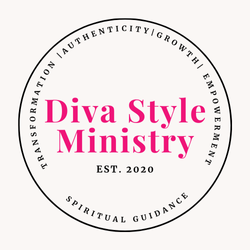If you are looking to gain clarity and a sharper focus on what you want to keep (or change) in your life, there may be no better way than to start keeping a daily journal.
Not only is your journal a powerful way to express yourself, but it is also an opportunity to listen to yourself. You can learn how to pay closer attention to what is inside your mind and your heart. Your journal helps you explore everything that is going on in your life, which is how you gain clarity.
The Forms of Journaling that Bring Clarity
Your daily journal routine empowers you to take (or make) space to pause in the chaos of everyday life, which gives you a chance to actually think about what is happening and how you feel about it. Journaling is an act that reconnects you to yourself.
The good news is that there is no one way to journal or a routine that works for everyone. You find what works for you, and you do it regularly.
Depending on what you are struggling with or what you want to think more carefully about, your journal can include:
- Different methods – pen, pencil, calligraphy, typing, electronic entries
- Media – photographs, fabric, or drawings
- Artwork – paintings, collages, or sculpture
- Formats – audio, written, or expressive and other factors.
Here are a few types of journal entries and forms of journaling that may help to bring you more clarity.
The Simple List
Especially when you are just starting, writing down simple lists is an excellent way to focus your mind and help you get going with a regular habit.
Write lists about what things you are thinking about a lot, things that make you happy, what really bothers you, what you did that day, how you are feeling, your hopes and dreams, or your regrets.
Lists are simple, and they can be used to fuel longer entries later. They also tell you what is essential, because you must distill your thoughts down into just a few things.
The Complex List
To provide yourself with more room to explore and analyze what’s on your mind, consider using more complex lists or outlines to fully flesh out deeper or more complicated subjects. Digging into past negative experiences, for instance, can require more time and space.
Exploring the depths of a dream you’ve held onto for a number of years should be given ample room to plumb the ins and outs and further strengthen your pursuit.
Free-Form Writing
The stream-of-consciousness entry is an excellent way to loosen up your mind. The longer you write, the more your stream tends to focus on what is important to you. This method can help you get clear about what’s going on up there in your perfectly imperfect mind.
Start writing and do not allow your pencil or pen to stop for at least ten minutes. Write whatever comes to your mind, even if it is nonsense or unrelated to anything else.
Just keep writing. Don’t judge or edit your thoughts or feelings, don’t worry about who will read this later (no one will), and dump all your thoughts onto the page.
When you are trying to figure out what matters, what you value, or where your life is heading, it can be beneficial to document your sense of gratitude. Recording your thanks each day helps you focus on what is meaningful and powerful in your life.
It keeps you in tune with those moments that are pulling strongly on your heart, and these moments of positivity can help you navigate hard times. When you look back at what you are most grateful for, it enables you to identify the most important things to you in your life right now.
Whether you have a relationship with God, or a Higher Power, or are more of a spiritual person, your journal can be a place where you record your thoughts and prayers, including your wishes for yourself and other people.
Spirituality is an integral part of our identity and how you are feeling about your relationship with God, Spirit, or the universe can tell you a great deal about your relationship with yourself, as well.
Final Thoughts
If you are looking to gain clarity about yourself, a situation in your life, a relationship, or a hard decision you need to make, journaling can help.
Creating space in your mind for important ideas and reflection is vital if you want to be clear about how you really feel or what you really want. And journaling is the perfect way to do that.





